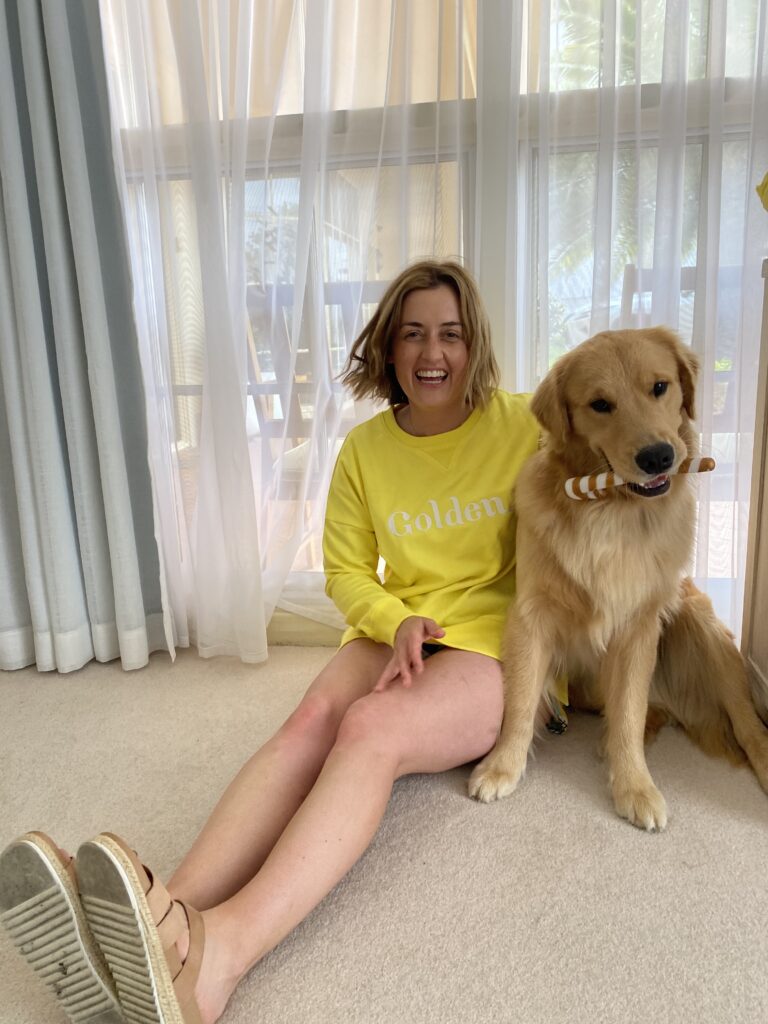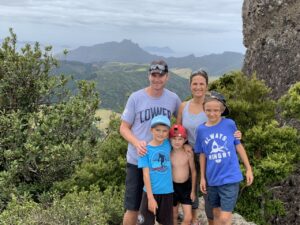By Codi Darnell
May 17, 2022
 When you experience a brain injury, it can feel as though you’ve been picked up out of your life and deposited onto the sidelines. The life you were living – all your obligations and the daily tasks you completed – still exist, but you’ve been removed from the action. Your priorities shift as your focus becomes recovery and your responsibilities are left behind, unattended.
When you experience a brain injury, it can feel as though you’ve been picked up out of your life and deposited onto the sidelines. The life you were living – all your obligations and the daily tasks you completed – still exist, but you’ve been removed from the action. Your priorities shift as your focus becomes recovery and your responsibilities are left behind, unattended.
So many of us live each day without giving much thought to the things we do that keep our lives and our families functioning. But as soon as we’re removed from the situation, the questions start to pile up.
Who will pick up the kids from school and take them to practice?
What are they going to eat?
Who will feed the dog?
Will someone contact your clients?
How can I get to my appointments if I can’t drive?
The things we never used to consider now make up a long list of uncertainty. And since the lasting impacts of a brain injury are wide-ranging, it can be difficult to assess how much of your previous responsibilities you will be able to return to.
The results of a brain injury can reach into all aspects of a person’s life. Physical, sensory, and cognitive/behavioural symptoms are experienced in many forms; affecting everything from speech and mobility to memory and mental wellness and beyond. Having just one of these symptoms can greatly impact someone’s ability to complete daily tasks, and many brain injury survivors experience multiple symptoms. So how do they cope? Enter the ‘support system’.
Building up a reliable support system is such an important factor when it comes to integrating a brain injury into your life. Sure, on good days it might be easy to slip back into your old routines, but, on the most difficult of days, just getting out of bed can be a struggle. While most days fall somewhere on the spectrum between the two, knowing you have a support system in place can help lessen the weight of your to-do list. Knowing you can pick up the phone and call in reinforcements, whether it’s to assist you in your responsibilities or to help you cope with the emotional aspects of a chronic condition, is an incredibly beneficial piece of the brain injury recovery puzzle.
Personal Experience
I reached out to two women who both live with a brain injury, and I asked them to tell me what their support system means to them. Amy Wells lives in Australia with her husband and two children. After suffering a stroke in 2019, she created her blog, theaimzrecovery, to document her journey and “spread hope and love amongst the acquired and traumatic brain injury community”.
Veronique Theberge lives with her family in New Zealand. She was inspired to share her journey with acquired brain injury after two events, two years apart, left her recovering her life. Her blog, Weird, Wonderful Brain, is “for people recovering from brain injury and managing the physical and mental health challenges that come along the way”.
Hear what these two brain injury survivors have to say about their support systems.
Amy Wells

At the age of 35, my life was bustling and full. My children were seven and four, my career was on the up, and my husband travelled regularly for work. Our schedule was full of activity.
That’s when stroke ripped the rug right out from under me, taking my identity and throwing every
thing associated with it away. It was hard. But there is one thing that has remained constant since that day almost two and a half years ago – my solid group of reliable supporters.
I simply wouldn’t have come as far as I have without my husband, my children, Lenny (my golden retriever), my mum, my dad, my sister, extended family, and a plethora of good friends who have been, and continue to be, there for me and who try their best to understand this complex invisible condition.
Having the support of family and friends meant I could focus on recovery without worrying about other responsibilities such as cooking, shopping, kids activities, etc. It meant I could attend my many appointments in the early stages because of all the offers to drive me. With so many people to check in and comfort me, I felt encouraged even when I was struggling the most. And I felt understood; even though the invisible nature of my injury is so hard to understand, my supporters tried.
Most of all, I felt loved.
Veronique Theberge
My partner is at the forefront of my support system. He is my rock and my most ardent supporter, putting up with all the ups and downs including the countless medical appointments and the uncertainty that lies ahead of us. He often reminds me that WE are a team, that WE are in this together, and he isn’t going anywhere. He hasn’t failed me once, and that lightens the list of my worries.
Then there are our three boys, who have had to grow up way too fast. They are why I try harder every day, they are why I take the downs on the chin and try to turn them into positives, and why I work so hard to keep my mental health in check.
Recovery also includes a myriad of health specialists who keep supporting us by sharing their knowledge, by working with us through the various steps of rehabilitation and listening to us to help us deal with all the changes that occurred along the way.
Employers who offer a flexible return-to-work plan are an important part of any support system. My experience has been that they enabled me to retain some level of independence and fulfilment that comes hand-in-hand with feeling valued by an organisation.
A close network of extended family and friends has also been invaluable, particularly as the months and years have gone by. You soon find out who will remain by your side in the long run.
Recovery is a long journey, but WE are well surrounded. Life doesn’t always go according to plan, but we are grateful for all those good human beings that were put on our path.
